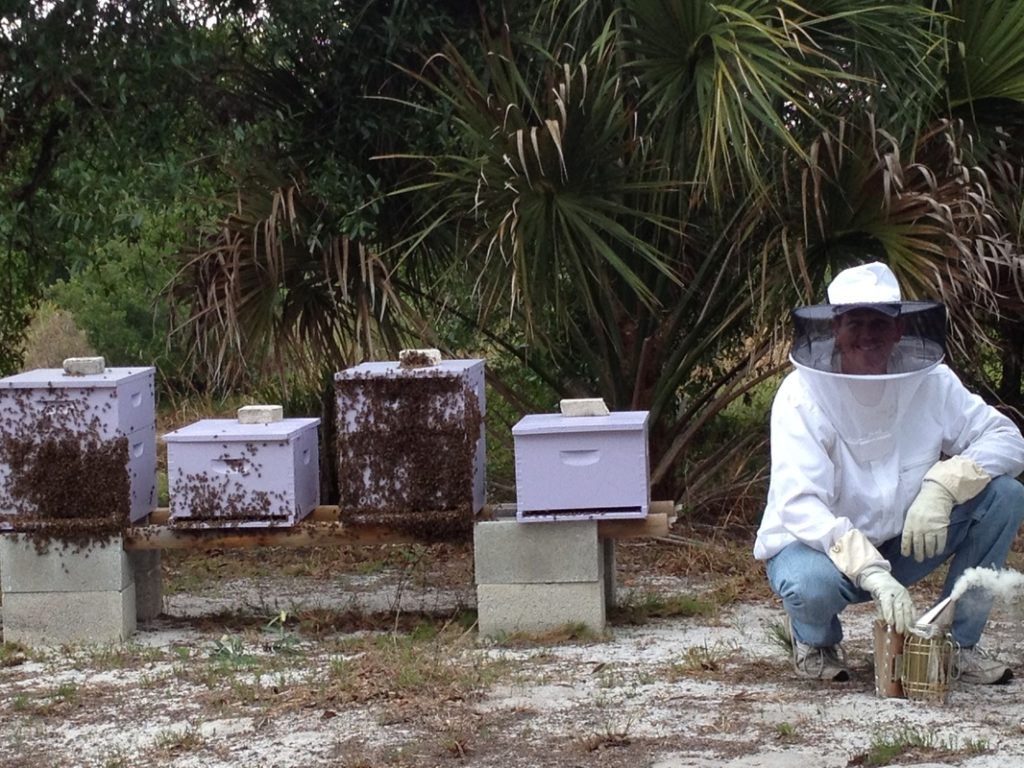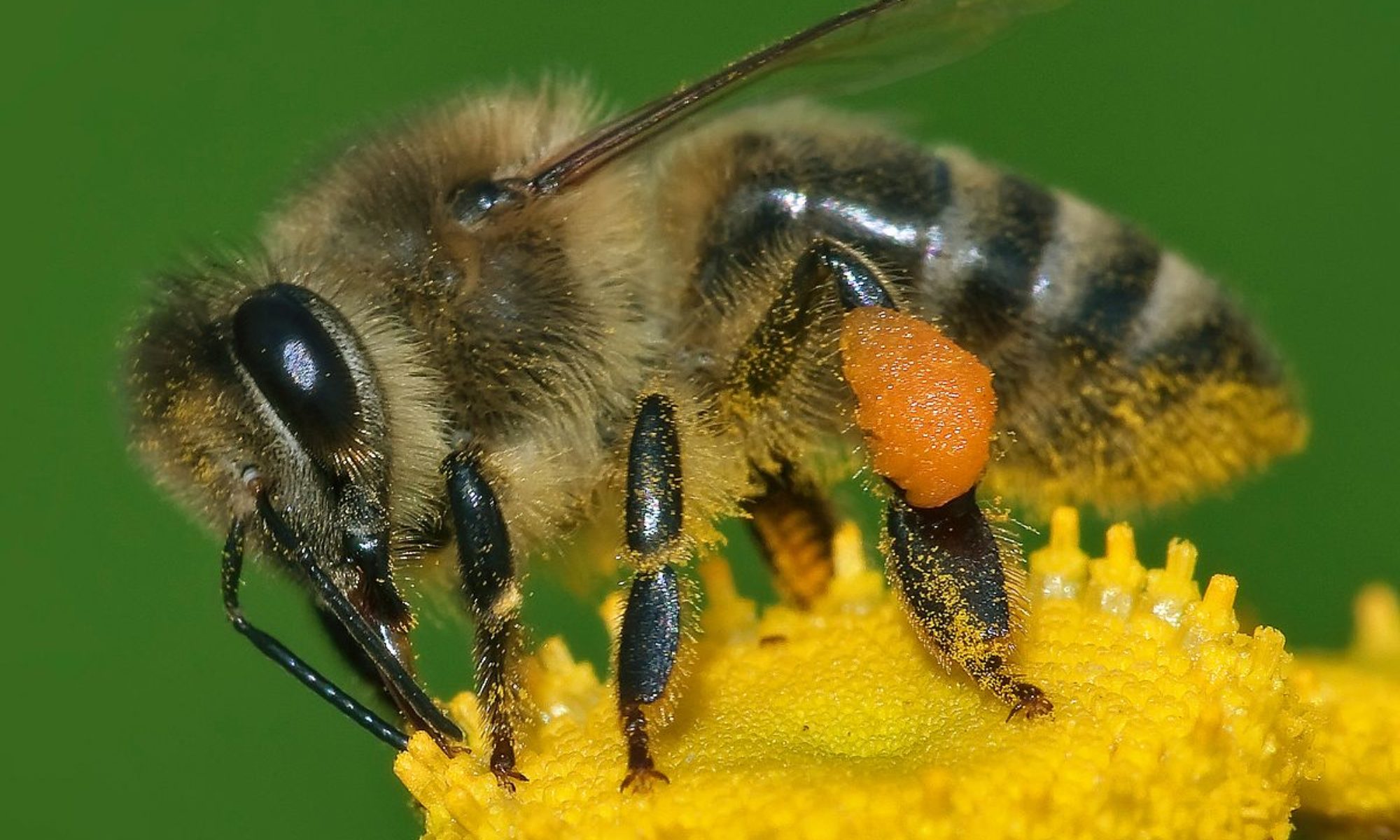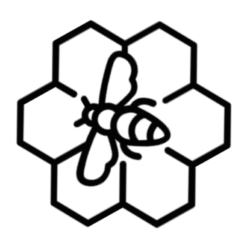An Apiary is not where the apes hang out ;-), but rather a formal name for a bee farm or location where a beekeeper keeps their bee hives. The base of the word comes from the Latin word “apis” meaning “bee”, leading to “apiarium” or “beehouse” and eventually “apiary“, according to Wikipedia. We just call it the Bee Farm.
Apiaries come in all sizes and provide different services with their honey bee colonies and locations range from urban to rural.

A beekeeper uses the apiary to raise bees:
- to sell to other beekeepers,
- to pollinate crops at farms locally or nationwide,
- to produce honey and other hive products, like pollen, propolis, royal jelly or beeswax,
- to help study the genetics, pests or behaviors of the honey bees in the area,
- to teach beekeeping to beginners
- or simply to help the environment and protect the bees from the rapid development of our lands.
In Florida, the Florida Department of Agricultural and Consumer Sciences (FDACS) requires an apiary and it’s beekeepers to register and be inspected annually. The Division of Apiaries handles this in the State of Florida.

